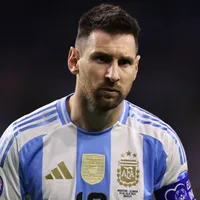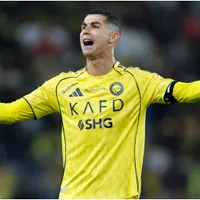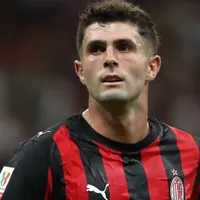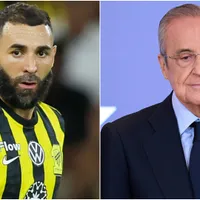In August 2021, Lionel Messi’s sudden departure from Barcelona shook the soccer world. What seemed like a settled contract renewal turned into a shocking farewell, leaving fans and experts questioning what went wrong. The story of Messi’s exit intertwines financial struggles, internal politics, and the unexpected influence of Real Madrid’s president, Florentino Perez.
When Joan Laporta won Barcelona‘s presidential election in March 2021, one of his core promises was to ensure Lionel Messi remained at the club. Laporta’s slogan, “I’ll fix things with Messi over a barbecue,” resonated with fans, earning him trust and votes. However, the club was in financial disarray, exacerbated by the pandemic. La Liga president Javier Tebas offered a lifeline: the CVC Capital Partners investment deal, Spanish newspaper Sport reveals
The proposed deal promised a €2.7 billion injection into La Liga clubs in exchange for 10% of their broadcasting rights for 25 years. Laporta saw this as a way to renew Messi’s contract, which had expired on June 30, 2021, and began negotiating in secret.
Turning point: Real Madrid intervenes
Florentino Perez, president of Real Madrid, was blindsided by the CVC deal. Upon learning about it, Perez called Javier de Jaime, CVC’s head in Spain, demanding a meeting. Perez viewed the deal as financially skewed in favor of CVC and detrimental to La Liga’s clubs, particularly its giants.
Perez’s skepticism set off a chain reaction. He instructed his director, Jose Angel Sanchez, to contact Barcelona’s CEO, Ferran Reverter. When Reverter admitted he was unaware of the CVC negotiations, tensions rose within the Catalans’ leadership.
That is when Reverter faced a dilemma: inform Laporta or alert Jose Elias, the guarantor of Laporta’s presidency. Elias, who had contributed €40 million as a financial backer, had insisted on being informed of significant financial decisions. Reverter chose to inform Elias, triggering a series of events that derailed Messi’s renewal.
Elias vehemently opposed the CVC deal, viewing it as a threat to his financial guarantee. He warned Laporta that proceeding with the deal would result in the immediate withdrawal of his backing, potentially ending Laporta’s presidency. With no alternative financing available, Laporta had to abandon the CVC agreement—and, with it, Messi’s renewal.
Messi’s final attempt to stay
Messi and his father, Jorge Messi, were blindsided by the sudden collapse of the deal, the report goes on to say. Jorge flew to Barcelona, believing the renewal was a mere formality. Messi himself, on vacation in Ibiza, awaited confirmation to sign the contract. The announcement was even drafted, ready to be released.
The Argentine’s father assured Laporta that money would never be an issue and that Messi was willing to accept any conditions to stay. However, Laporta had already decided, citing financial constraints and the impossibility of fulfilling his electoral promise without the CVC funds.
Publicly, Laporta blamed the CVC deal, stating that signing it would have “mortgaged the club for 25 years.” Messi’s camp, however, felt betrayed. From their perspective, the non-renewal wasn’t purely a financial issue but stemmed from deeper mismanagement and miscalculations by the Barcelona board.
Florentino Perez’s role in unraveling the CVC deal added another layer to the story. While Perez acted in Madrid’s best interests, his intervention indirectly catalyzed Messi’s departure.
Then, on August 5, 2021, Laporta informed Messi and his family that the renewal was impossible. Three days later, the superstar held a tearful press conference, bidding farewell to the club he had called home for 21 years. Shortly after, he joined Paris Saint-Germain on a free transfer.















